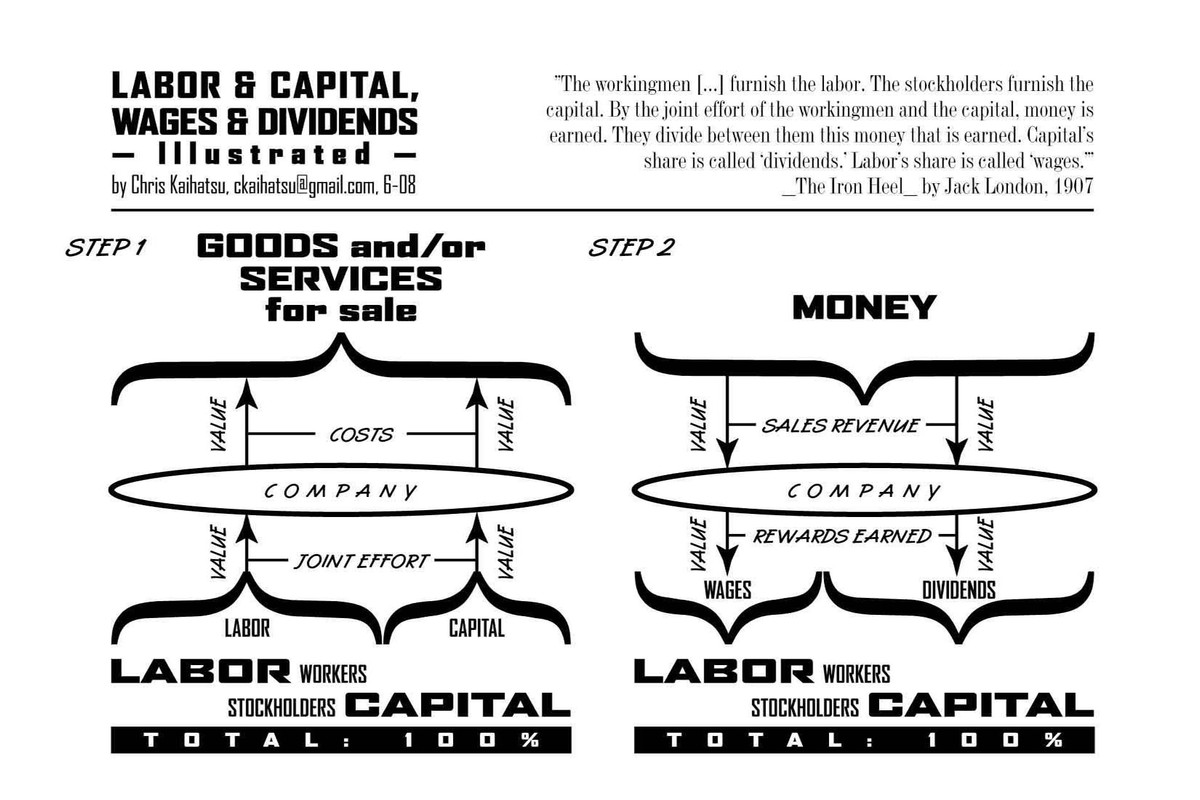- 26 Jul 2021 17:38
#15182602
Is Marxism old-fashioned?
All possible apologies to believers, but the answer is YES;
1- The whole theory of Marx is based on the idea of EXPLOITATION of wage-earners by capitalists. The problem is that Marx’s proof is not correct. The surplus value theory rests on the labour theory of value. But this theory is wrong. All economists know that. The mistake of this theory appears even in Marx’s “The Capital”. Goods are sold, he tells us, at the “production price”, which results from equalisation of the profit rate. These production prices ARE the REAL value because the exchange value does not mean anything if it is not the normal price. Labour value is a useless variable in the model, but it is necessary to prove exploitation.
The real problem is not exploitation, which is not demonstrable. The problem is inequality. We must drastically reduce it.
2- The fundamental cause of inequality, Marx stated it correctly, is the capitalist system of property. Collective property of means of production is the solution and the base of socialism. But collective property is the fact that property is not private. Nothing to do with market versus planning. Market is compatible with collective property and it has the advantage to be more efficient than planning. Socialists are to design an economy which blends collective property with market. Competition between different firms which all belong to the State.
3- And even if we do not like it, a (little) place must be kept for private property of small business. It is impossible that the State creates itself at the satisfaction of customers, all restaurants, pubs, corner shops…
All possible apologies to believers, but the answer is YES;
1- The whole theory of Marx is based on the idea of EXPLOITATION of wage-earners by capitalists. The problem is that Marx’s proof is not correct. The surplus value theory rests on the labour theory of value. But this theory is wrong. All economists know that. The mistake of this theory appears even in Marx’s “The Capital”. Goods are sold, he tells us, at the “production price”, which results from equalisation of the profit rate. These production prices ARE the REAL value because the exchange value does not mean anything if it is not the normal price. Labour value is a useless variable in the model, but it is necessary to prove exploitation.
The real problem is not exploitation, which is not demonstrable. The problem is inequality. We must drastically reduce it.
2- The fundamental cause of inequality, Marx stated it correctly, is the capitalist system of property. Collective property of means of production is the solution and the base of socialism. But collective property is the fact that property is not private. Nothing to do with market versus planning. Market is compatible with collective property and it has the advantage to be more efficient than planning. Socialists are to design an economy which blends collective property with market. Competition between different firms which all belong to the State.
3- And even if we do not like it, a (little) place must be kept for private property of small business. It is impossible that the State creates itself at the satisfaction of customers, all restaurants, pubs, corner shops…
Paul Jael











 - By wat0n
- By wat0n